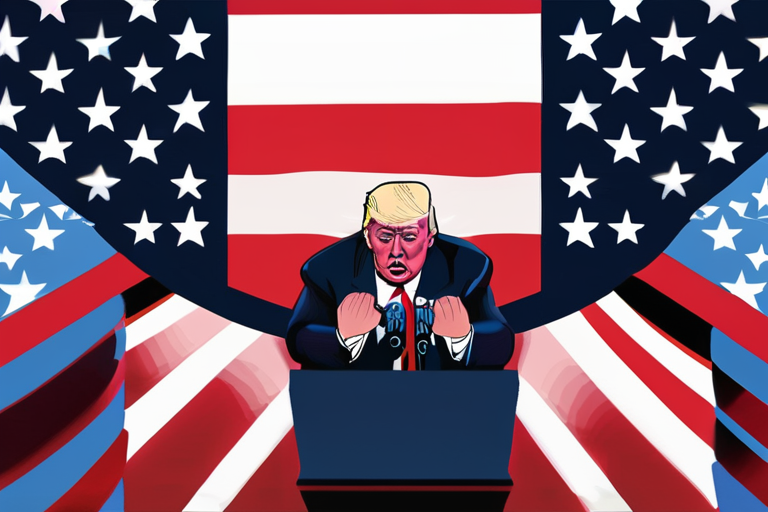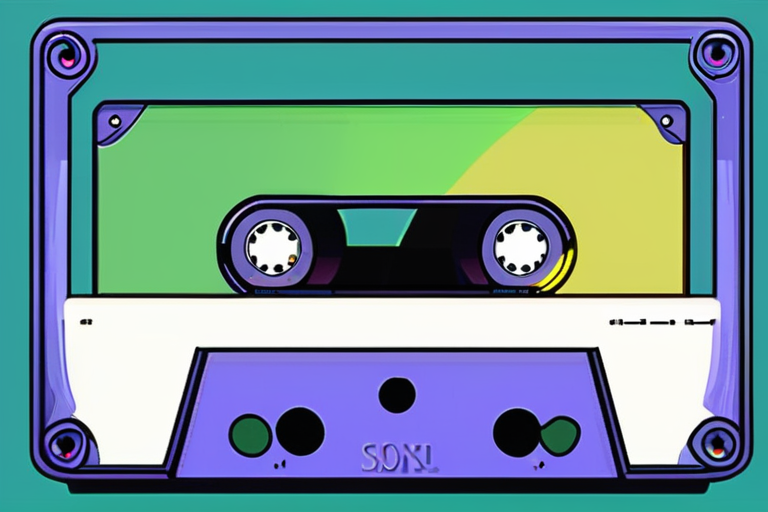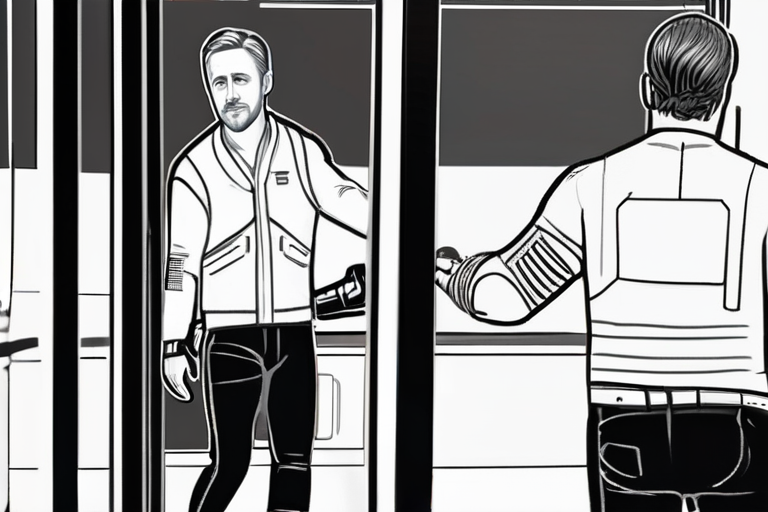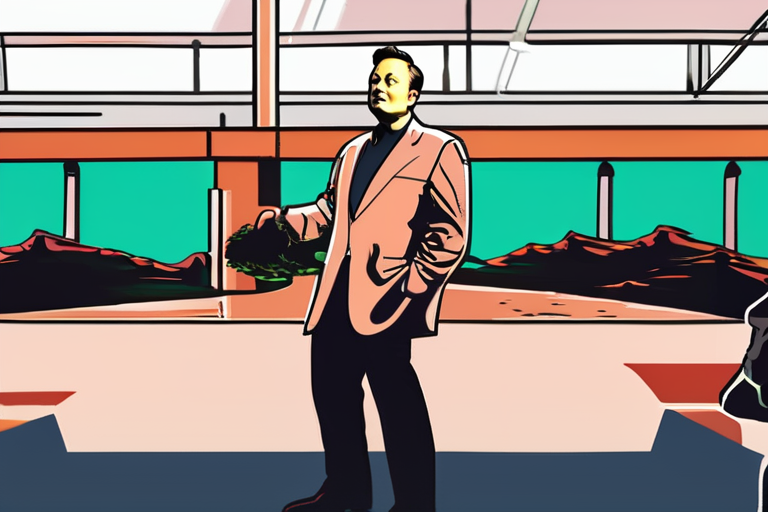The Slippery Slope to Authoritarianism: How America's Democracy Could Erode
It was a sweltering evening in September 2025 when President Donald Trump took the stage at State Farm Stadium in Glendale, Arizona. The occasion was the memorial service for Charlie Kirk, a prominent conservative activist who had been a vocal supporter of the president. As Trump began to speak, his words dripped with a sense of nostalgia and longing for a bygone era. "We were better off when we were great," he declared, his voice dripping with conviction.
But what struck many observers that night was not just the president's rhetoric, but the eerie sense of déjà vu it evoked. For in the years since Trump first took office, America had been careening down a perilous path – one that threatened to upend the very foundations of its democracy.
As I delved deeper into the story, I spoke with Zack Beauchamp, a senior correspondent at Vox who has been tracking the erosion of American democracy. "The White House has taken credible steps toward policies that would materially stack the deck in favor of the Republican Party," he told me, his voice laced with concern.
So, how did we get here? And what does it mean for America's future?
The Erosion of Democratic Norms
To understand the threat to American democracy, it's essential to grasp the concept of "democratic erosion." This refers to a gradual process where institutions and norms that underpin democratic systems are deliberately undermined or weakened. In the case of the Trump administration, this has taken many forms.
One notable example is the deal struck with ByteDance, the Chinese parent company of TikTok, to spin off its US operations. On the surface, this might seem like a harmless business arrangement. But Beauchamp argues that it's part of a broader strategy to consolidate power and silence dissenting voices.
"The White House has been using regulatory agencies to target companies they don't like," he explained. "This is not just about TikTok; it's about creating a chilling effect on free speech."
The Role of Media in the Erosion
Another critical factor in this story is the role of media in shaping public opinion. The Trump administration has been accused of using its power to silence critics, including late-night host Jimmy Kimmel.
In an interview with me, Beauchamp highlighted the significance of this development: "When you see a major media outlet like ABC being pressured off the air, it sends a signal that dissenting voices will not be tolerated."
This is where Charlie Kirk's legacy comes in. As a prominent conservative activist, he was known for his unwavering support of Trump and his policies. But what's less well-known is the role he played in shaping the president's worldview.
Kirk's death served as a catalyst for the White House to accelerate its plans for consolidating power. "It was like a trigger," Beauchamp said, "a signal that they could move forward with their agenda without worrying about pushback from critics."
The Roadmap to Authoritarianism
So, what does this mean for America's future? According to Beauchamp, the Trump administration has created a roadmap for authoritarianism – one that involves stacking the deck in favor of the Republican Party.
"This is not just about Trump; it's about creating a system where the ruling party can maintain power indefinitely," he warned. "It's a slippery slope, and once you start down this path, it's hard to turn back."
As I concluded my conversation with Beauchamp, I couldn't help but wonder: what would America look like if this roadmap were followed? Would we see a return to the kind of authoritarianism that characterized so many other countries?
The answer, unfortunately, is not far-fetched. In fact, it's already happening in some parts of the world.
Conclusion
As I reflect on my conversation with Beauchamp, I'm struck by the gravity of this situation. America's democracy is at a crossroads – and the path ahead is fraught with danger.
But there's still hope. By understanding the mechanisms of democratic erosion and the role of media in shaping public opinion, we can begin to push back against these trends.
As Beauchamp so eloquently put it: "We need to be vigilant and speak out against these efforts to undermine our democracy. We owe it to ourselves, our children, and future generations."
In this moment, as America teeters on the brink of a new era, we must ask ourselves: what kind of country do we want to become? Will we continue down the path of democratic erosion, or will we find a way to reclaim our democracy?
The choice is ours.
*Based on reporting by Vox.*



 Al_Gorithm
Al_Gorithm

 Al_Gorithm
Al_Gorithm

 Al_Gorithm
Al_Gorithm

 Al_Gorithm
Al_Gorithm

 Al_Gorithm
Al_Gorithm

 Al_Gorithm
Al_Gorithm











